Topic We Cover: Ansal vs Apeejay Stya vs BML Munjal vs GD Goenka
1. Depreciating value of engineers: Time for introspection
2. The Factors
- Placements
- Student perception of a college/university
- Infrastructure
3. Ansal University Gurgaon
- Ansal University Academics
- Ansal University Course Details
- Ansal University Placements
4. Apeejay Stya University Gurgaon
- Apeejay Stya University Academics
- Apeejay Stya University Course Details
- Apeejay Stya University Placements
5. BML Munjal University Gurgaon
- BML Munjal University Academics
- BML Munjal University Course Details
- BML Munjal University Placements
6. GD Goenka University Gurgaon
- GD Goenka University Academics
- GD Goenka University Course Details
- GD Goenka University Placements
7. OP Jindal Global University Sonepat
- OP Jindal Global University Academics
- OP Jindal Global University Course Details
- OP Jindal Global University Placements
8. SGT University Gurgaon
- SGT University Academics
- SGT University Course Details
- SGT University Placements
9. The Comparison
Haryana is not wildly popular when it comes to having the best universities in India. However, there are a number of colleges and universities in the state which have a reasonably good reputation.

Ansal University, Apeejay Stya, BML Munjal and GD Goenka are the most popular private universities in Gurgaon
The presence of private universities in Haryana is also highly noticeable. Institutions such as Ansal, Apeejay Stya, BML Munjal and GD Goenka have offered students a choice besides the overflowing government institutions which are too difficult to get into.
While some private colleges can be deemed worthwhile, there are a few others who act as mere ‘degree shops’. The quality of education at such private colleges is below par and simply too aberrant to be allowed to function.
It is for this reason that scrutinizing each college based on a given set of parameters is highly advisable. While government colleges can be trusted to a certain degree for providing a perceivably good (if not literally good) education, private colleges and universities do not inspire the same trust. This is primarily because, in India, the backing of the government lends weight to any given institution almost instantly. On the other hand, private colleges have to earn their spurs by constantly improving across all avenues to gain a good status.
Depreciating value of engineers: Time for introspection?
Since India has been independent, engineering as a profession has never seen a down round. Every era of modern India has been shaped in some form by the engineers of the respective generation. The establishment of the IITs sowed the seeds for ‘scientific temper’ amongst Indians, a feeling which has carried to future generations.
However, as we currently stand on the cusp of another radical tech revolution, the crowd of engineering talent on hand does not lack in quantity but lacks severely in quality. Part of this mess has been the phenomenon of private colleges and universities, many of whom have are not equipped to offer technical courses like engineering.
A report commissioned by the Government of India in 2016 deemed the unregulated standards for higher education to be a major cause for the rapid rise of private education in the country. While some private colleges and universities can be called proficient, the story is otherwise for the majority of the private colleges.
Is a solution near in sight? Experts think there might be a solution. ‘The problem of private colleges could end exactly how it began’ believes Tarun Madhav, an educationist.’ Students today are joining private engineering colleges as they assume a B.Tech degree will land them a job, no matter how mediocre their education at the college is. As the days of mass hiring have come to an ebbing, these private colleges will not be able to deliver placements. No placements will mean no students next year. Problem solved!’
While the premise of Tarun’s solution is right, the execution of this solution might be so easy. For instance, there is also the problem of private colleges making lofty claims during the time of admissions. What does one do in such cases?
Tarun replies to this point by making the point that the effort required to rid the system of such dodgy colleges has to be collective. ‘In India, we have a problem. Every time we face a big problem, we expect the government to help us out. To stop colleges from making such claims, hold them accountable for every word they say. If they backtrack on their claims, protest and bring the name of the accused party into the spotlight. Most problems can be solved without waiting ceremoniously for the government to arrive and swish its magic wand!’
The Factors
As we established the point of being vigilant while choosing a college of study, the right way to do it is by establishing a blueprint of factors which are fundamental to the assessment of any given university.
The factors have been listed below:
- Placements
Placements are a key distinguishing factor between engineering colleges. The first question most aspirants want to know about a prospective college is the range of placement package their graduates are getting.
Though the exercise may seem too lop-sided, it remains highly popular. Many private engineering colleges use their impressive performance in campus recruitment as a plank to market their college. Part of the appeal for top-tier IITs and IIMs is also down to them managing to gain the best placement figures in the country.
If you wish to know the placement data of a given college, you can find the same on the institution’s website. If there is no mention of placements on the college website, we would advise you to reconsider taking admission to the given college.
- Student perception of a college/university
In order to be known as a decent college, it should have a respectable perception. There is no secret to gauge the perception of a college. The simple way is to ask your friends and relatives what they feel about the given college. If the answer is resoundingly positive, go for it.
Another method which is more reliable is to find out what the given college’s alumni have to say. These days, you can easily access alumni reviews of colleges through premier education sites such as ReviewAdda
- Infrastructure
As a college aspirant, gauging the college infrastructural level is a fairly complex task. But first, it is important to understand the meaning of infrastructural level of a college.
The infrastructural level of a college refers to the highest level you can reach as a student studying at the given college by using the resources made available by the college. For instance, the infrastructural level of foreign universities far exceeds that of the IITs, who lag behind in research output.
The best way to judge a college’s infrastructure is simple: just ask. Visit the college website and check the following:
- Presence of state-of-the-art labs
- Academically challenging curriculum
- Faculties with PhDs (at least 50%)
- Average teaching experience of faculties (should be 7-10 years)
- Special allowance for students involved in research
- Affordability
If you belong to a middle-class family like most engineering aspirants, the prospect of paying a high fee for a B.Tech course offered at a private college must be daunting. For this reason, the affordability of a given course remains a very important factor.
As a student, it can be difficult to evaluate whether the fee demanded is fair. One way to do it is by calculating the time you will need to recover the money you paid as college fees. This will be done by comparing annual tuition fee with the average annual package offered at the college campus during placements. The table below simplifies the concept:
|
Time taken to recover B.Tech fee |
Type of college |
|
<=1 year |
Tier 0 : (Old IITs) |
|
1-2 years |
Tier 1 (BITS Pilani, Jadavpur University, Old NITs, New IITs) |
|
2-3 years |
Tier II (IIITs, New NITs, Other Govt colleges, and universities) |
|
3+ years |
Tier III (Private Colleges and Universities) |
Ansal University Gurgaon
Ansal University is one of the most popular universities in the Gurgaon region. Established only a few years back in 2012, Ansal University came into being with the aim to raise the bar of higher education in the state and the country in general.
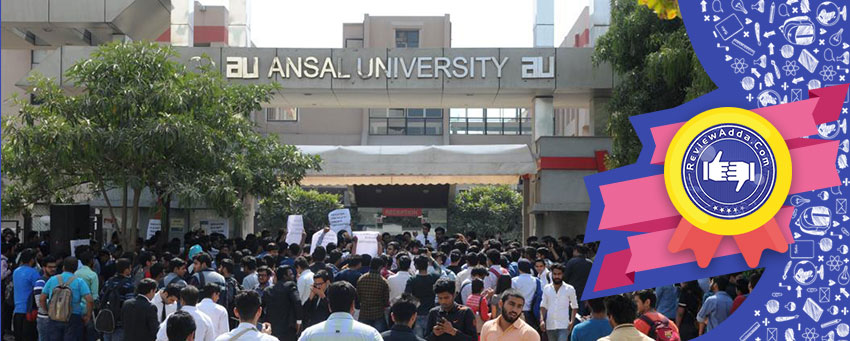
Ansal University is a renowned institution of higher education in Gurgaon
Offering over 19 courses at its 15-acre campus in Gurgaon, Ansal University has been doing a lot of things right in the past few years. Its placement record has been decent too.
Ansal University is recognized by UGC as a private university, removing all doubts over the institution's legitimacy and the courses’ validity.
Ansal University Academics
Ansal University academic structure is cogently segregated according to its respective discipline. The overview of the academics, namely the different departments are listed below:
- Sushant School of Art and Architecture
- Vatel School of Hospitality and Management
- School of Management Studies
- School of Engineering and Technology
- School of Law
- Sushant School of Design
- School of Health Sciences
Ansal University Course Details
Ansal University courses are listed below:
|
Course |
Duration |
Fee per annum (INR) |
|
Bachelor of Technology (B.Tech) |
4 |
2,13,750/- |
|
Bachelor of Architecture (B.Arch) |
5 |
5,57,000/- |
|
Bachelor of Computer Applications (BCA) |
3 |
1,01,667/- |
|
Bachelor of Science (B.Sc) |
3 |
1,81,667/- |
|
Bachelor of Business Administration (BBA) |
3 |
1,71,667/- |
|
Bachelor of Design (B.Des) |
4 |
3,58,750/- |
|
Bachelor of Planning (B.Plan) |
4 |
2,10,000/- |
|
Bachelor of Arts + Bachelor of Law (BA+LLB) |
5 |
1,87,000/- |
|
Bachelor of Business Administration + Bachelor of Law (BBA+LLB) |
5 |
1,87,000/- |
|
Bachelor of Commerce (B.Com) |
3 |
1,31,667/- |
|
Master of Technology (M.Tech) |
2 |
1,17,500/- |
|
Master of Business Administration (MBA) |
2 |
3,05,900/- |
|
Master of Architecture (M.Arch) |
2 |
1,37,500/- |
|
Master of Design (M.Des) |
2 |
2,27,500/- |
Ansal University Placements
Ansal University placements are only further credited by the fact that more than 170 companies visited its Gurgaon campus last year for placements. The Corporate Resources Centre handles placement procedure at Ansal University. Some highlights of its placement program have been given below:
|
Statistic |
Data |
|
Average Package (INR) |
3.37 LPA |
|
Highest Package (INR) |
9 LPA |
|
Number of companies visiting campus |
172 |
Apeejay Stya University Gurgaon
Another educational institution from the ‘millennium’ city of India is Apeejay Stya University. Like Ansal, Apeejay is also a very popular brand in the education sector, with a number of public schools across India operational under the same name.
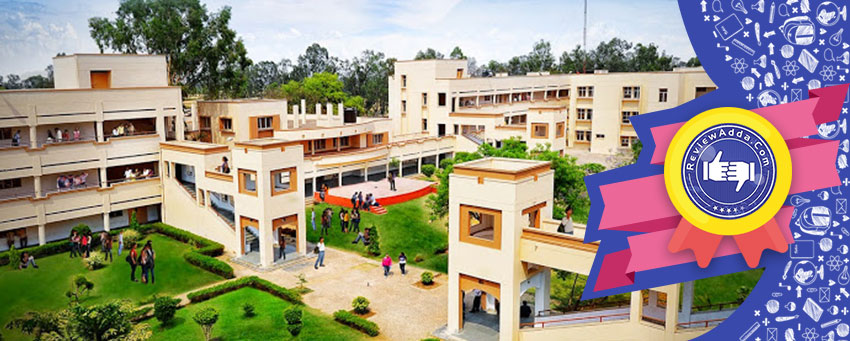
Apeejay Stya is a well-respected university for higher studies
Apeejay Stya University was established in 2010 by Dr. Stya Paul in the name of Apeejay Educational Society. The university was given autonomous status soon after its establishment under Act No. 10 of Haryana Private Universities.
The university is also recognized by UGC and a member of the Association of Indian Universities (AIU). It is also accredited by a number, of course, specific bodies such as BCI, PCI, and NCTE.
Apeejay Stya University Academics
Apeejay Stya University academics are divided into a number of constituent schools based on their respective disciplines. These schools are listed below:
- School of BioSciences
- School of Engineering-
- School of Design
- School of Education
- School of Journalism and Mass Communication
- School of Management
- School of Pharmacy
Apeejay Stya University Course Details
Apeejay Stya courses are listed below along with their respective duration and fees per annum.
|
Course |
Duration |
Fee per annum (INR) |
|
Bachelor of Technology (B.Tech) |
4 |
1,64,200/- |
|
Bachelor of Arts (BA) |
3 |
1,23,650/- |
|
Bachelor of Business Administration (BBA) |
3
|
1,71,667/- |
|
Bachelor of Design (B.Des) |
4 |
1,64,200/- |
|
Bachelor of Pharmacy (B.Pharm) |
4 |
1,44,200/- |
|
Bachelor of Education (B.Ed) |
2 |
91,200/- |
|
Bachelor of Arts + Bachelor of Law (BA+LLB) |
5 |
1,63,800/- |
|
Bachelor of Business Administration + Bachelor of Law (BBA+LLB) |
5 |
1,63,800/- |
|
Bachelor of Commerce (B.Com) |
3 |
1,55,825/- |
|
Bachelor of Technology + Master of Technology (B.Tech + M.Tech) |
4 |
1,20,000/- |
|
Master of Business Administration (MBA) |
2 |
2,16,200/- |
|
Master of Arts (MA) |
2 |
1,66,200/- |
|
Master of Science (M.Sc) |
2 |
1,66,200/- |
Apeejay Stya University Placements
Apeejay Stya University placement highlights have been elucidated in the table below:
|
Statistic |
Data |
|
Average Package (INR) |
3.3 LPA |
|
Highest Package (INR) |
12 LPA |
|
Number of companies visiting campus |
64 |
 Get Updated Review ( Voice Based Alumni Feeback)
Get Updated Review ( Voice Based Alumni Feeback)
-
 Check Review (Alumni Feedback) - Lovely Professional University - [LPU] – Click Here
Check Review (Alumni Feedback) - Lovely Professional University - [LPU] – Click Here -
 Check Review (Alumni Feedback) - Amity University – Click Here
Check Review (Alumni Feedback) - Amity University – Click Here -
 Check Review (Alumni Feedback) - Graphic Era University – Click Here
Check Review (Alumni Feedback) - Graphic Era University – Click Here -
 Check Review (Alumni Feedback) - SRM University Sonipat – Click Here
Check Review (Alumni Feedback) - SRM University Sonipat – Click Here -
 Check Review (Alumni Feedback) - Ansal University – Click Here
Check Review (Alumni Feedback) - Ansal University – Click Here
BML Munjal University Gurgaon
BML Munjal University is an institution established in Gurgaon in 2014 by the ‘Hero Group’ to set a new standard in the higher education of the country. Spread across 50 acres, BML Munjal is one of Gurgaon’s biggest and most prominent institutions having built a solid perception around its image over the past few years.
The university is recognized by UGC and accredited by AICTE. The campus is fully residential, implying students admitted to the college have to take up residence in the hostel.
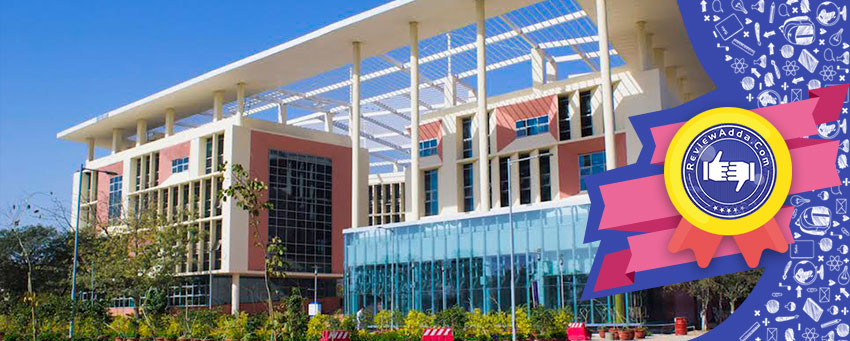
BML Munjal University has grown in stature over the five years since its inception in 2013
BML Munjal University Academics
At BML Munjal University, academics are imparted through three constituent schools listed below:
- School of Economics and Commerce
- School of Engineering and Technology
- School of Management
BML Munjal University Course Details
BML Munjal courses are listed below along with details such as duration and fees:
|
Course |
Duration |
Fee per annum (INR) |
|
Bachelor of Technology (B.Tech) |
4 |
2,75,000/- |
|
Bachelor of Business Administration (BBA) |
3
|
1,71,667/- |
|
Bachelor of Commerce (B.Com) |
3 |
1,95,000/- |
|
Master of Business Administration (MBA) |
2 |
4,87,500/- |
|
Doctorate (PhD) |
3 (min) |
56,500/- |
BML Munjal University Placements
Since B.Tech batch is yet to graduate, we can only analyze placement records of BBA and MBA graduates. BML Munjal placement stats for MBA and BBA graduates are highlighted in the table below:
|
Statistic |
Data |
|
Average Package for BBA/ B.Com (INR) |
4.5 LPA |
|
Average Package for MBA (INR) |
7.0 LPA |
|
Number of Corporates visiting campus |
100+ |
GD Goenka University Gurgaon
GD Goenka University Gurgaon brings us to another prime educational institution located in the Delhi-NCR belt. Established in 2013 by the GD Goenka Group, the university has since enjoyed growing popularity along with many other private universities established in the same time. Only recently, the University was given the’ best upcoming private university’ award by ASSOCHAM.
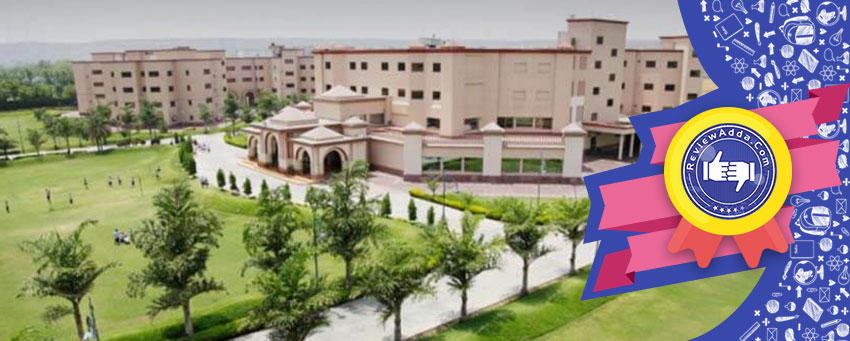
GD Goenka University is a popular name in Delhi NCR region for higher education
The University is recognized by UGC and accredited by a number, of course, specific bodies such as NCTE, PCI, BCI, and COA.
B.Tech and MBA are two of the most popular courses offered at GD Goenka University and admissions to both these courses are offered based on the applicant’s performance in JEE Main (for B.Tech) and CAT/MAT/GMAT (for MBA).
GD Goenka University Academics
GD Goenka University academics are carried through a number of different departments divided according to their respective discipline.
- School of Architecture & Planning
- School of Communication
- School of Education
- School of Engineering
- School of Fashion & Design
- School of Hospitality
- School of Humanities & Social Science
- School of Law
- School of Management
- School of Medical and Allied Sciences
GD Goenka University Course Details
GD Goenka University courses are listed below:
|
Course |
Duration |
Fee per annum (INR) |
|
Bachelor of Technology (B.Tech) |
4 |
2,15,000/- |
|
Bachelor of Arts (BA) |
3 |
80,000/- |
|
Bachelor of Business Administration (BBA) |
3
|
2,60,000/- |
|
Bachelor of Design (B.Des) |
4 |
2,45,000/- |
|
Bachelor of Pharmacy (B.Pharm) |
4 |
1,30,000/- |
|
Bachelor of Education (B.Ed) |
2 |
80,000/- |
|
Bachelor of Science (B.Sc) |
3 |
2,45,000/- |
|
Bachelor of Arts + Bachelor of Law (BA+LLB) |
5 |
2,25,000/- |
|
Bachelor of Business Administration + Bachelor of Law (BBA+LLB) |
5 |
2,25,000/- |
|
Bachelor of Commerce + Bachelor of Law (B.Com+ LLB) |
5 |
2,25,000/- |
|
Bachelor of Technology + Master of Technology (B.Tech + M.Tech) |
5 |
1,95,000/- |
|
Master of Business Administration (MBA) |
2 |
2,97,500/- |
|
Master of Arts (MA) |
2 |
70,000/- |
|
Master of Science (M.Sc) |
2 |
90,000/- |
|
Master of Technology (M.Tech) |
2 |
85,000/- |
GD Goenka University Placements
GD Goenka University placements stats are highlighted in the table below:
|
Statistic |
Data |
|
Average Package for BBA (INR) |
3.0 LPA |
|
Average Package for MBA (INR) |
4.5 LPA |
|
Average Package for B.Tech (INR) |
3 LPA |
OP Jindal Global University Sonepat
OP Jindal Global University is arguably one of the most popular educational institutions in Haryana and North India. Though it was established just a few years back in 2009, it has since harvested a reputation for being highly diligent and focused in its academic approach.
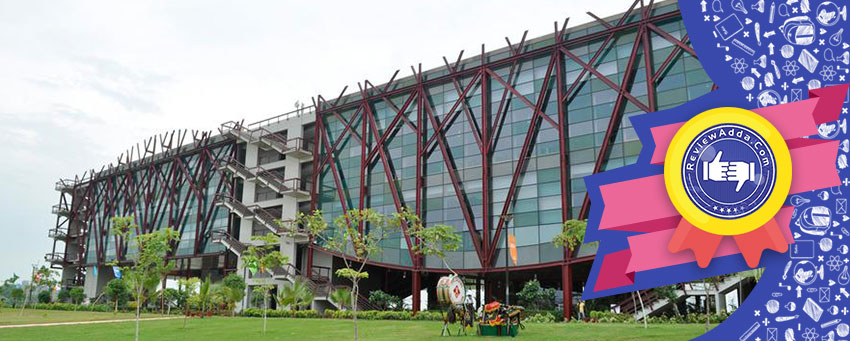
OP Jindal Global University is well known and respected private university located in Sonepat, Haryana
JGU was established in 2009 by industrialist Naveen Jindal as a philanthropic endeavor in the memory of his father, the late OP Jindal.
JGU is recognized by UGC and graded ‘A’ by NAAC. It is most famous for its law course, and thus JGU also has BCI accreditation.
OP Jindal Global University Academics
OP Jindal Global University academics are organized through different constituent schools of learning. These schools are listed below:
- Jindal Global Law School
- Jindal Global Business School
- Jindal School of International Affairs
- Jindal School of Government and Public Policy
- Jindal School of Liberal Arts & Humanities
- Jindal School of Journalism & Communication
- Jindal School of Art & Architecture
OP Jindal Global University Course Details
OP Jindal Global University courses are listed below:
|
Course |
Duration |
Fee per annum (INR) |
|
Bachelor of Arts (BA) |
3 |
2,50,000/- |
|
Bachelor of Business Administration (BBA) |
3 |
4,00,000/- |
|
Bachelor of Law (LLB) |
3 |
6,16,667/- |
|
Bachelor of Business Administration + Bachelor of Law (BBA+ LLB) |
5 |
5,60,000/- |
|
Bachelor of Arts + Bachelor of Law (BA + LLB) |
5 |
5,60,000/- |
|
Master of Business Administration (MBA) |
2 |
5,50,000/- |
|
Master of Law (LLM) |
1 |
4,00,000/- |
|
Doctorate (PhD) |
3 (min) |
1,50,500/- |
OP Jindal Global University Placements
OP Jindal Global University placement highlights have been tabulated in the table below:
|
Statistic |
Data |
|
Average Package (INR) |
7.5 LPA |
|
Highest Package (INR) |
15 LPA |
|
Number of companies visiting campus |
56 |
SGT University Gurgaon
Sri Guru Gobind Singh Tricentenary University was established in 2013 as a non-profit by the SGT Group of Institutions. Though it is merely five years in total age, SGT University has grown in popularity over the years by elevating the level of academic discourse than previously expected.
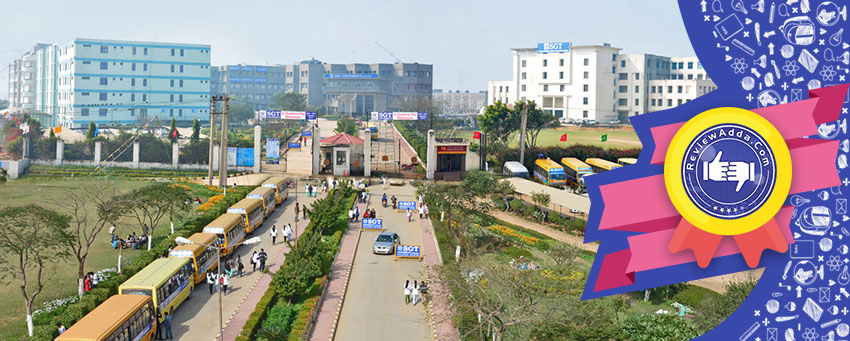
SGT University Gurgaon has developed a stable perception around its name since its inception in 2013
SGT University is recognized and accredited by the UGC and AICTE. Other accrediting bodies include MCI and BCI, for medical and law courses respectively.
Engineering remains the most popular course on campus followed by MBA and Law.
SGT University Academics
Like all the aforementioned colleges, SGT University academics are divided on the basis of the discipline of courses.
- Faculty of Medicine & Health Sciences
- Faculty of Engineering & Technology
- Faculty of Law
- Faculty of Commerce & Management
- Faculty of Mass Comm. & Media Tech.
- Faculty of Hotel & Tourism Management
- Faculty of Physical Sciences
- Faculty of Education
- SGT College of Pharmacy
- Faculty of Dental Sciences
- Faculty of Indian Medical System
- Faculty of Nursing
- Faculty of Physiotherapy
- Faculty of Behavioural Sciences
- Faculty of Allied Health Sciences
- Faculty of Fashion & Design
- Faculty of Agricultural Sciences
- Faculty of Naturopathy & Yogic Sciences
SGT University Course Details
SGT University courses are listed below:
|
Course |
Duration |
Fee per annum (INR) |
|
Bachelor of Technology (B.Tech) |
4 |
1,20,000/- |
|
Bachelor of Arts (BA) |
3 |
1,00,000/- |
|
Bachelor of Business Administration (BBA) |
3
|
85,000/- |
|
Bachelor of Design (B.Des) |
4 |
1,50,000/- |
|
Bachelor of Pharmacy (B.Pharm) |
4 |
1,50,000/- |
|
Bachelor of Commerce (B.Com) |
3 |
75,000/- |
|
Bachelor of Education (B.Ed) |
2 |
75,000/- |
|
Bachelor of Science (B.Sc) |
3 |
75,000/- |
|
Bachelor of Arts + Bachelor of Law (BA+LLB) |
5 |
1,20,000/- |
|
Bachelor of Business Administration + Bachelor of Law (BBA+LLB) |
5 |
1,20,000/- |
|
Bachelor of Medicine, Bachelor of Surgery (MBBS) |
5 |
16,36,364/- |
|
Bachelor of Technology + Master of Business Administration (B.Tech + MBA) |
5 |
1,09,091/- |
|
Master of Business Administration (MBA) |
2 |
1,50,000/- |
|
Master of Arts (MA) |
2 |
90,000/- |
|
Master of Science (M.Sc) |
2 |
1,00,000/- |
|
Master of Computer Applications (MCA) |
3 |
85,000/- |
|
Master of Technology (M.Tech) |
2 |
70,000/- |
SGT University Placements
SGT University placements are highlighted in the table below:
|
Statistic |
Data |
|
Average Package (INR) |
3.5 LPA |
|
Percentage of students placed |
79% |
|
Number of companies visiting campus |
45 |
The Comparison
The comparison between the top private universities in Haryana is listed below:
|
Factors |
Placements (out of 10) |
Perception (out of 10) |
Infrastructure (out of 10) |
Affordability (out of 10) |
|
Ansal University |
8.1 |
8.4 |
8.6 |
8.6 |
|
Apeejay Stya University |
8.1 |
8.5 |
8.7 |
8.8 |
|
BML Munjal University |
8.8 |
8.5 |
8.7 |
8.2 |
|
GD Goenka University |
8.6 |
8.3 |
8.5 |
8.4 |
|
OP Jindal University |
9.1 |
8.7 |
8.8 |
8.0 |
|
SGT University |
8.0 |
8.4 |
8.4 |
9.0 |

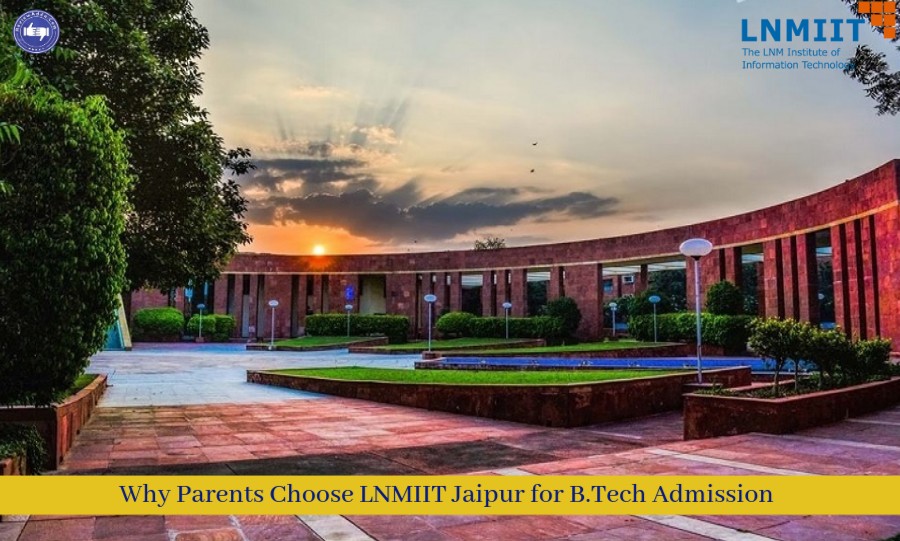
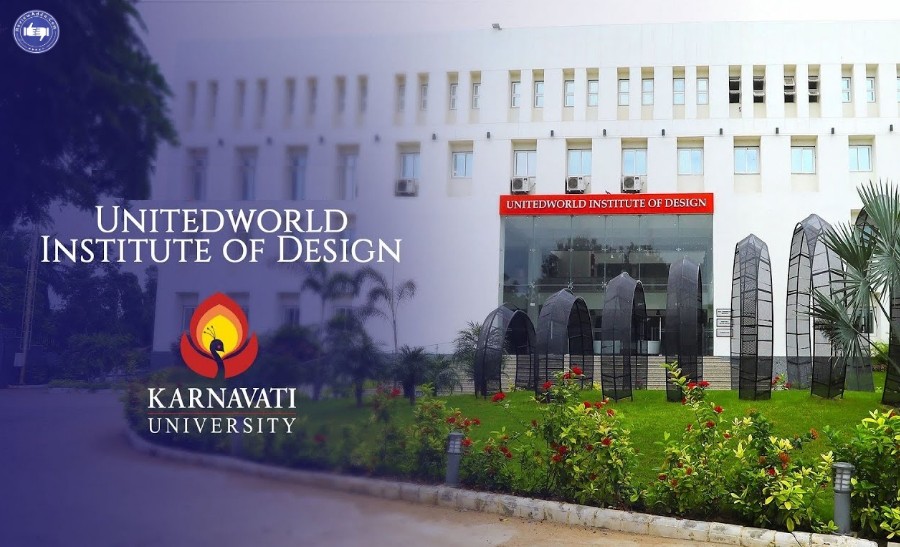
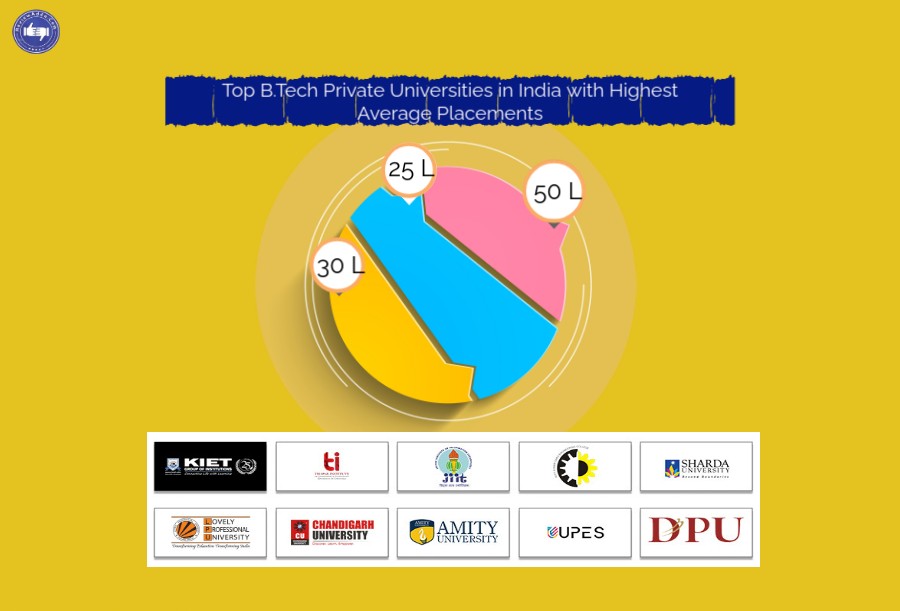
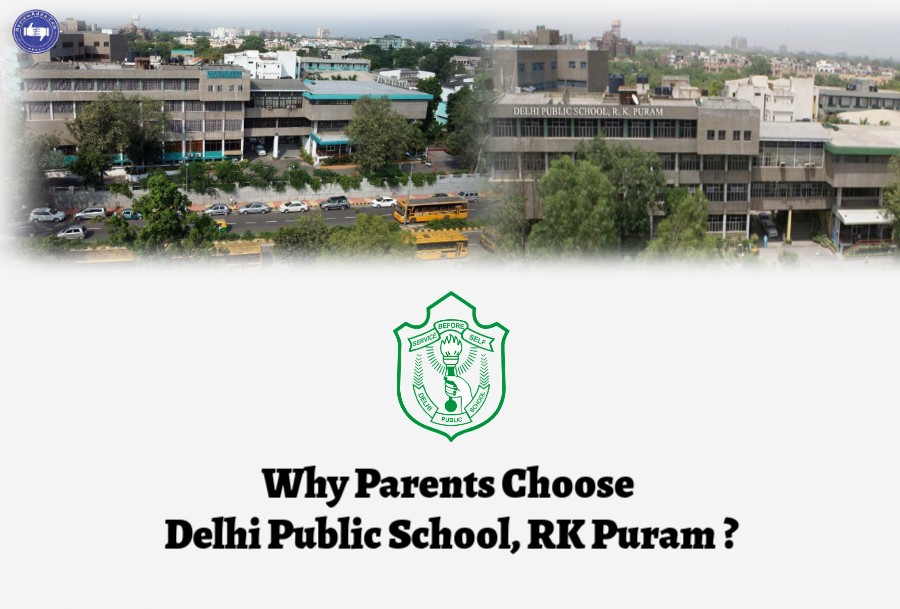
.jpg)
